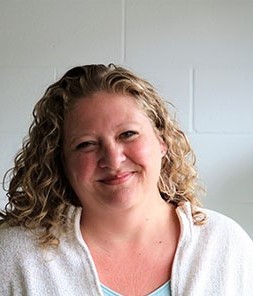Arts and Integrated Studies

(she/her/hers)
Department Head, Associate Professor
Arts and Integrated Studies
Abbotsford campus, D3121
Phone: 604-504-7441 ext. 4229
email DanaI fell in love at first sight with the discipline of what would come to be called “Writing Studies” when I was 19, as a third-year undergraduate in English Literature at SFU. Writing Studies can be defined as the study and teaching of writers and writing in academic, professional, and public contexts.
I have been part of the UFV family for 17 years, 13 in the Writing Centre and as a sessional instructor in the departments of Communications, Criminology, and English, and, since 2015 as an Assistant Professor in Communications. I predominantly teach and study academic and life writing, as well as professional writing. My scholarly interests include writing pedagogy, writing across the curriculum and amongst the disciplines, interdisciplinarity and disciplinarity, writing through the lifespan, academic identity, and life writing in the academy.
My dissertation, “Writing Studies in Canada: A People’s History,” mapped the institutional locations, material conditions, identities, and experiences of Writing Studies professionals in Canada. I am currently writing a memoir—a book-length critical literacy narrative of my experiences learning to write in the rural British Columbian public education system and teach and study writing in the British Columbian public post-secondary education system.
I live in Mission with my dog, Finnigan, and cat, Sofie (she found me at UFV, see series of articles in Cascade, 2016-2017.) My hobbies include getting closer to the sea, visiting my cabin, walking and hiking, going on weekend trips, seeing new places, photographing nature, life writing, reading, gardening, and colouring.
PhD; Interdisciplinary Studies Graduate Program (University of British Columbia, 2016)
MA; English Language (University of British Columbia, 2002)
BA Honours; English (Simon Fraser University, 2000)
As my dad put it, it’s about who you teach not what you teach. My dad, now retired, thought of himself as a teacher of teenagers first and of social studies, math, and shop second. And so it is that I believe that teaching writing means teaching students to write, rather than teaching writing to students. In short, it doesn’t matter what I teach if students aren’t excited about it. Reciprocally, what I teach needs to be flexible in order to respond to student excitement where it arises. I enact this pedagogical principle through strategies for engagement: active learning, student-centred curriculum, and enculturation in academic and professional communities.
1) Active learning
My classes involve a lot of cooperation, collaborative knowledge making, spontaneity, movement, and courage. Students work with different configurations of people all the time, such that most students work with each other several times and groups of friends emerge, engendering a classroom atmosphere of safety and trust. Students also do a lot of activities to learn…writing, drawing, building, presenting in various oral forms such as rhyme, games, and, on occasion, song or dramatic performance.
2) Student-centred curriculum
Students in my classes do a lot of life writing about their experiences as writers and students, as well as with course concepts. This work is primarily meant to enhance their capacity as self-reflexive thinkers and learners. It also serves to help me tailor my curriculum to the students in a specific class. Life writing deepens the relationship between the students and I through trust and sharing of personal story. I learn more about them so I can better understand their learning needs, and they can learn more from me because they feel safe taking the emotional risks necessary to learn. Further, life writing helps me see the scope my whole class, which allows me to choose readings and activities specific to their interests and facilitate connections between students in the classroom environment.
3) Enculturation in academic and professional communities
Students are novice participants in academic and professional communities. They are active knowledge makers who participate directly in the activities in interdisciplinary and disciplinary communities.
Current projects:
From Literary Studies to Writing Studies
In collaboration with Dr. Katja Thieme (Arts Studies in Research and Writing Department, UBC), I seek to understand the experiences of Writing Studies scholars who began as scholars in Literary Studies and who transitioned or now identify and work in both fields. We will be interviewing scholars who began in Literary Studies in BC and currently identify as working in Writing Studies to identify their motivations for pursuing the field, paths to disciplinary membership in terms of identity and employment, and benefits and drawbacks of those paths.
Writing through the lifespan
I am involved in the Writing through the Lifespan project as a core-researcher in an international team of 30 committed to involvement in a century-long study across multiple sites through time that measures the development of people’s capacity to write through a lifespan. The research project arose in response to calls for more complex, qualitative, and longitudinal measures of writing development than are typically used, such as established markers like age, grade, and year. The aim is to open up examination of school writing to include writing in workplace, community, family, and personal contexts.
Proposed sabbatical project 2019-2020:
I have proposed a scholarly activity project that does Writing through the Lifespan work, a book-length critical literacy narrative, a memoir about learning to write, to think of myself as a writer, and to become a teacher and researcher of writing within the British Columbian public and post-secondary education systems.